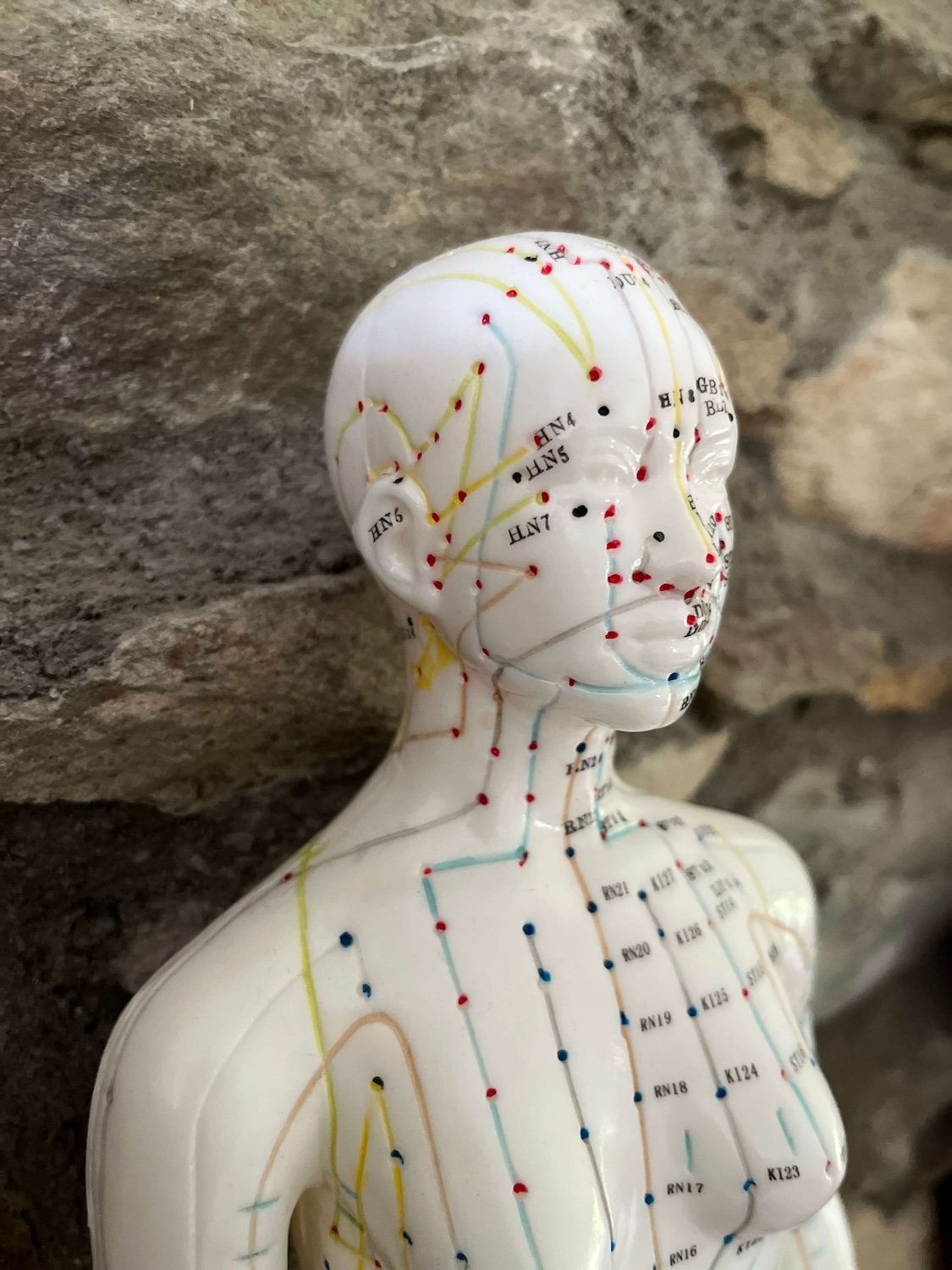Conditions treated
Acupuncture can enhance your overall well-being and works well alongside traditional medical care.
-
Acupuncture is frequently utilized to alleviate various types of pain by targeting specific points on the body to stimulate natural healing processes. It is particularly effective for back pain, neck pain, joint pain, migraines, and menstrual cramps. The technique works by promoting the release of endorphins, which are natural painkillers, and improving blood flow to the affected areas. Additionally, acupuncture helps reduce inflammation and muscle tension, leading to relief from chronic and acute pain. This approach offers a holistic and drug-free option for managing pain and improving overall quality of life.
-
Acupuncture helps to reduce stress and anxiety by promoting relaxation and restoring balance to the body's energy flow. It stimulates the release of neurotransmitters and hormones that help regulate mood and stress levels. This process activates the parasympathetic nervous system, which calms the body and mind. Acupuncture improves overall energy flow (Qi) and alleviates physical symptoms associated with stress, such as muscle tension and insomnia. Acupuncture supports emotional well-being and helps create a sense of balance and calm.
-
Acupuncture can benefit conditions such as irritable bowel syndrome (IBS), acid reflux, and constipation by regulating digestive function. It stimulates the release of digestive enzymes, improves gastrointestinal motility, and reduces inflammation. Acupuncture supports the regulation of digestive hormones and helps alleviate symptoms like bloating, pain, and irregular bowel movements. This approach aims to restore balance to the digestive system, leading to improved overall digestive health and comfort.
-
Acupuncture improves sleep quality and addresses insomnia by calming the mind and promoting relaxation. It helps regulate the body's internal systems and enhances the release of neurotransmitters that support restful sleep. Acupuncture also balances the body's energy flow (Qi) and addresses underlying factors contributing to sleep disturbances, such as stress, anxiety, and hormonal imbalances. It can alleviate physical symptoms like pain or discomfort that may interfere with sleep. The goal is to restore a natural sleep pattern, leading to more restful and rejuvenating sleep.
-
Acupuncture helps alleviate symptoms of allergies, asthma, sinusitis, and other respiratory conditions by reducing inflammation and improving respiratory function. It also enhances lung function, improves airflow, and supports the body's natural ability to clear mucus and allergens. Additionally, it helps alleviate symptoms such as nasal congestion, sneezing, and shortness of breath.
-
Acupuncture is commonly used to address women's health issues such as menstrual irregularities and discomforts, infertility and menopausal symptoms.
-
Acupuncture strengthen the immune system and promote overall well-being, making it helpful for preventing and managing illnesses.
-
Acupuncture may provide relief for neurological conditions such as neuropathy, trigeminal neuralgia and Bell's palsy, by stimulating nerve function and reducing inflammation.
-
Acupuncture is beneficial for managing, anxiety, depression, post-traumatic stress disorder (PTSD), and other mental health concerns by promoting relaxation and balancing mood.
-
In addition to pain management, acupuncture assist with musculoskeletal conditions such as arthritis, tendonitis, and fibromyalgia by reducing inflammation and promoting tissue healing. In addition to pain management, acupuncture assists with musculoskeletal conditions such as arthritis, tendonitis and lateral epicondylitis by reducing inflammation and promoting tissue healing. Acupuncture reduce muscle tension and increase range of motion, contributing to overall joint and muscle health. This holistic approach not only addresses symptoms but also supports the body's natural ability to repair and regenerate tissues, offering relief from chronic and acute musculoskeletal issues.
While acupuncture enhance your overall well-being, it's important to remember that it complements traditional medical care. Before starting acupuncture sessions or adjusting your healthcare routine, we recommend consulting with your regular healthcare provider.
To ensure a safe and effective acupuncture experience, please share information about any recent surgery or trauma, pregnancy, bleeding disorders or blood-thinning medication, pacemaker, and chronic health conditions during your assessment.

